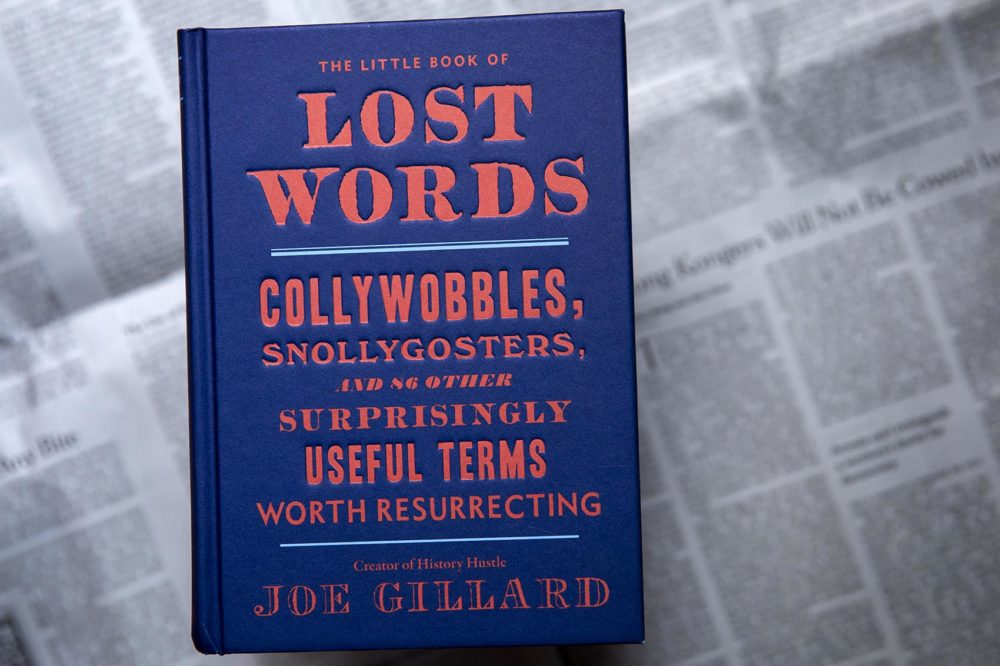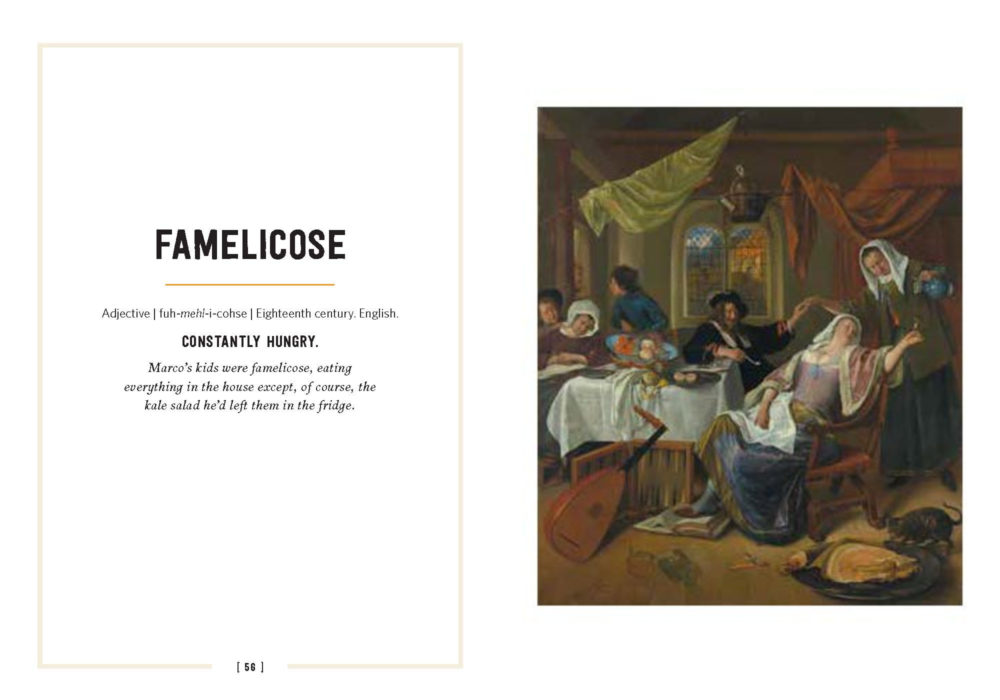Advertisement
New Book Resurrects 'Scaramouch,' 'Fogo' And Other Lost Words
Resume
Here & Now's Robin Young speaks with author Joe Gillard, founder of the website "History Hustle," about his new book "The Little Book of Lost Words: Collywobbles, Snollygosters, and 86 Other Surprisingly Useful Terms Worth Resurrecting."

Joe Gillard's Favorite Lost Words
1. Shivviness (noun)
The unpleasant or itchy feeling that comes from wearing new underwear.
Recorded in The English Dialect Dictionary. You can just feel it as you say it. Modern fabric manufacturing has mostly solved this problem, but underwear discomfort as a general concept transcends time.
2. Betweenity (noun)
Being in the middle, or between two things.
This lovely-sounding word was thought to be coined by Horace Walpole, English writer and 4th Earl of Orford. It might take a creative stretch to use this naturally in a sentence, but you can wield it for expressions of ambiguity and duality.
3. Mumpsimus (noun)
A stubborn person who refuses to change their mind despite being proven wrong.
Here’s a dinner-table anecdote to slip in somewhere: there was a Catholic priest who, while reciting the prayer, “quod ore sumpsimus, Domine”, said instead “quod ore mumpsimus, Domine. When shown his error, instead of acknowledging the mistake and having a self deprecating chuckle about it, he persisted to say “mumpsimus”. Thereafter, it became a word to describe someone who refuses to admit they’re wrong despite being proven so.
4. Fudgel (verb)
To pretend to work without actually doing anything.
This comes from An Universal Etymological English Dictionary in 1742 and is proof that human beings are essentially the same, no matter what year you set your time machine to. Our work may be different now, but we still know how to burn the clock until the bell rings.
5. Groke (verb)
To stare eagerly at someone who is eating, hoping they’ll give you food.
From Dictionary of the Scots Language, this word could describe your dog, but it could also be that coworker with the sad bag lunch who covets your teriyaki bowl.
6. Sciolist (noun)
One who only pretends to be knowledgeable on subjects.
You can find this word in written examples as far back as the 17th century, and probably came in handy during the 18th-century Enlightenment period when everyone wanted to be up on the latest developments in science, and discuss it with their peers. Also completely suitable for the modern day, as we all have at least a few sciolists in our lives.
7. Slugabed (noun)
A person who sleeps in later than expected.
This is one of Shakespeare’s words that ages well, and should be resurrected. You can find it in Romeo and Juliet, Act 4, scene 5: “Mistress! What, mistress! Juliet!—Fast, I warrant her, she.—
Why, lamb! Why, lady! Fie, you slug-a-bed.”
8. Verily (adverb)
Certainly or truly.
If you find yourself at a Renaissance fair and want to fit in, throw this one into your sentences as an adverb or use as an interjection. Then just pepper in a few doths, hithers, thithers, and thous, and you’re good to go.
9. Snollygoster (19th-century American slang)
A dishonest, corrupt, and unprincipled person, esp. a politician.
This one likely comes from “snallygaster”, the name of a winged and tentacled creature of American “mythology” believed to eat small animals and children. Which, in true American fashion, was exposed as a hoax by a publisher looking for a sensational story. The word seems to have stuck around for a while, morphing into an insult directed at dishonest, immoral politicians.
10. Egrote
To pretend to be sick.
This word can be found in The Royal Dictionary from 1729. Just because our ancestors couldn’t cough into a telegram or a letter, doesn’t mean they couldn’t “call in sick”. Let’s bring this word back, if only because there’s no modern synonym.
This segment aired on September 9, 2019.
